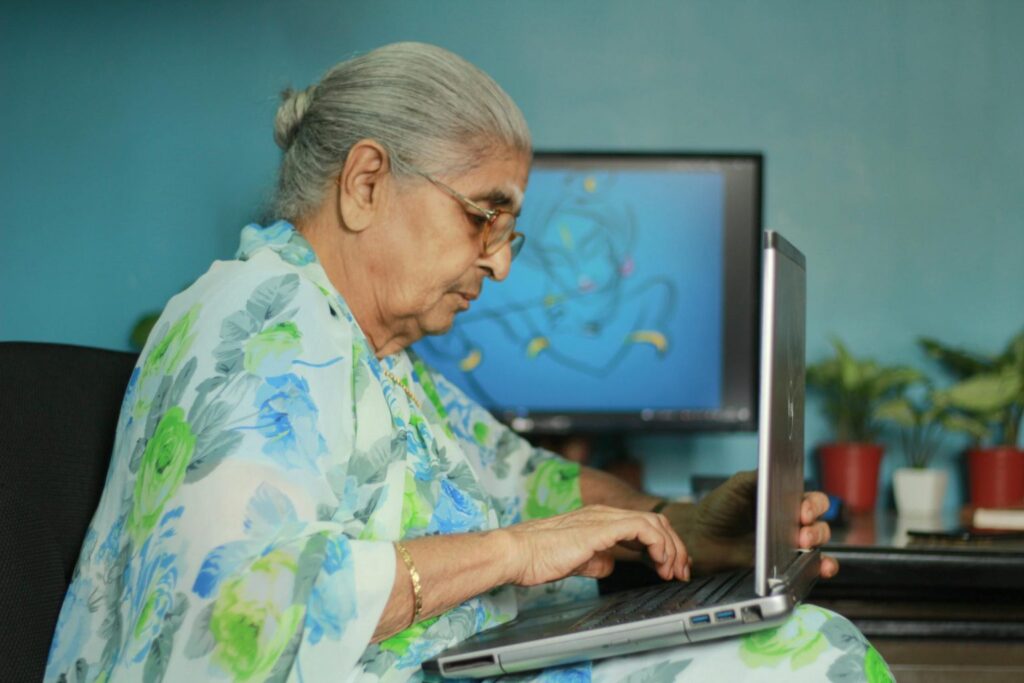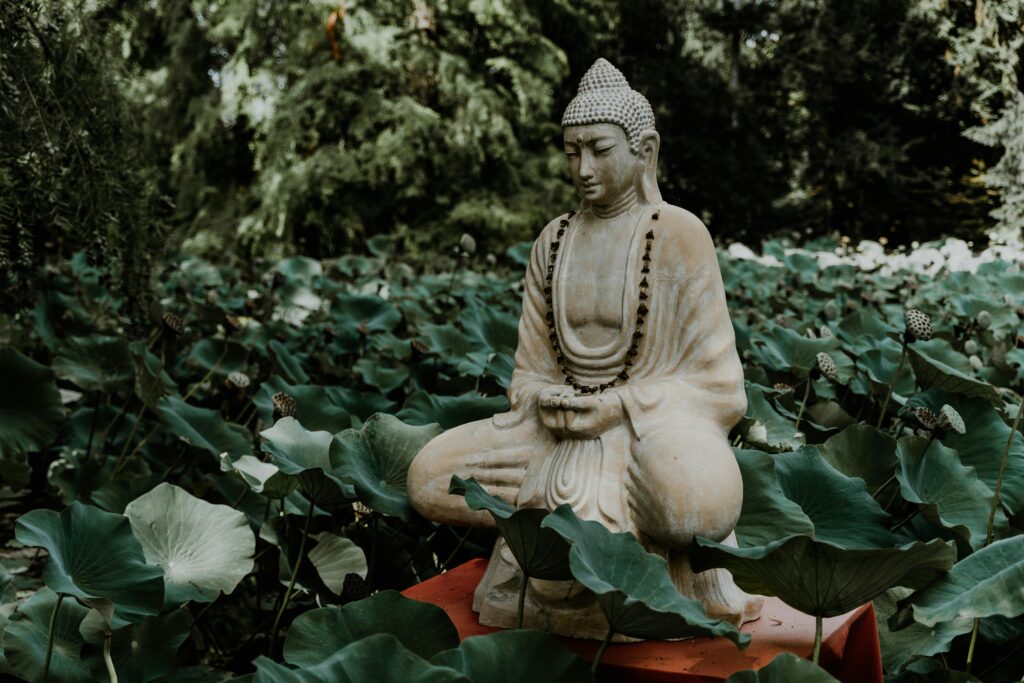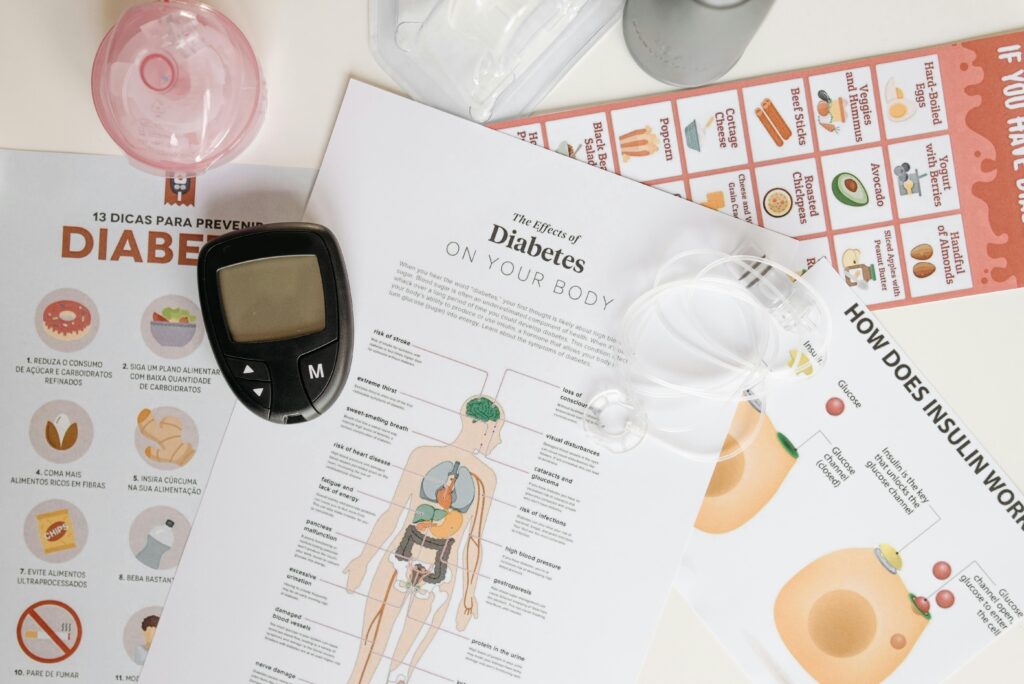Dr. V. S. Natarajan Geriatric Foundation sat down with Mrs. Sabita Radhakrishna, founder of UDHAVI, to discuss her journey in elder care and the growing need for community-driven support for seniors.
In this conversation, she shares the inspiration behind UDHAVI, the challenges of volunteer-based elder care, and her vision for a more inclusive and age-friendly society.
Shrilaxmi: What inspired you to work in elder care, especially considering that Geriatrics was not widely recognized when you began?
Mrs. Sabita Radhakrishna: Officially, UDHAVI started in 2013, but I had been involved in elder care long before that. I grew up in an environment where caring for the elderly was part of everyday life.
My father, Dr. A.G. Chandrasekharan was a Gynaecologist and a GP, ran Chander’s Clinic and Maternity Home, and later in his life, he took in elders who had nowhere else to go. Many of their children had moved abroad and didn’t know what to do with their aging parents.
As children, we were encouraged to spend time with them, talk, play games, and make them feel at home. They were mostly Anglo-Indians or Europeans who found comfort in our home-like environment. My father ensured their medical needs were met, while my mother personally prepared meals suited to their dietary needs. In a way, he pioneered a model of elder care when senior homes were still unheard of in India.

In 2001, I lost my daughter, who was just 34 years old. She had a natural affinity for elders, always looking out for them, visiting them, and ensuring they were cared for. In her memory, I decided to channel my energy into elder care by founding UDHAVI.
Though I had been helping elders on an individual level before, forming an organization allowed me to bring together like-minded people and extend our reach.
Shrilaxmi: UDHAVI has always been a volunteer-driven organization, right?
Mrs. Sabita Radhakrishna: Yes. From the beginning, I gathered people who genuinely wanted to support the elders. Some of them had firsthand experience caring for aging parents and understood the need. For example, two of our early members left their IT jobs to run a store called “Old is Gold,” which catered to elder care products. Their commitment convinced me they were the right people to join UDHAVI.
We have a core committee of 13 members who define our policies and plan our visits. Our website, udhavi.net, is managed voluntarily by a friend who doesn’t charge us anything. Every aspect of UDHAVI is run on goodwill. We do not take donations, but if someone wants to sponsor an event, a wheelchair, or a walking aid for a needy elder, we accept such direct contributions.

Shrilaxmi: What does UDHAVI’s model of care focus on?
Mrs. Sabita Radhakrishna: Our primary goal is to combat loneliness among elders. We don’t provide housekeeping or medical services. Instead, we visit seniors, listen to them, and simply be there for them. Often, they just need a sounding board. If they have deeper issues, such as legal or financial concerns, we connect them to relevant paid services.
Shrilaxmi: Volunteerism often comes with expectations of rewards. Since UDHAVI operates without monetary incentives, what drives your volunteers?
Mrs. Sabita Radhakrishna: Our volunteers are people with a personal connection to the cause. They don’t join just because they have free time; they join because they care deeply about elder well-being. That’s why we have a stringent selection process.
We keep a low profile and don’t actively seek publicity, though UDHAVI has become well-known over the years. People who volunteer do so out of genuine commitment, not for recognition.

Shrilaxmi: Your model seems to be hyperlocal. How does that work?
Mrs. Sabita Radhakrishna: We have volunteers spread across Chennai, and we match them with elders in their own neighborhoods to minimize travel. Although we officially have 45 volunteers, only about 7–8 are consistently active.
New volunteers go through a screening process and an orientation before they start visiting elders, always in pairs. We prioritize safety, ensuring that both the volunteers and the elders are comfortable.

Shrilaxmi: What is the age range of your volunteers?
Mrs. Sabita Radhakrishna: Our youngest active volunteer is about 50, while our oldest is 87 and incredibly energetic. Commitment is key. We ask for just two hours a week, and we ensure that new volunteers shadow experienced ones before they take on visits independently.
Shrilaxmi: As discussions on elder care grow, what is one critical issue that remains unaddressed?
Mrs. Sabita Radhakrishna: The biggest challenge we face is the shortage of dedicated volunteers. Many elders need companionship, but we need more committed individuals to sustain our work.
While discussions on Geriatrics and elder care have increased, active participation in supporting seniors has not kept pace. Without immediate efforts to engage more volunteers, this issue will become even more pressing in the future.


Shrilaxmi: Can you tell us one positive development in the elder care space?
Mrs. Sabita Radhakrishna: Elderly people are getting a lot more facilities than before. Just now, during the inauguration of a shop selling accessories, I saw something that lifts an older person from the bed. If you push it, it works like a trolley—you take them to the washroom and gently lower them onto the commode. Things like this never existed before.
We never had walkers before. Walking sticks were common, but not the ones with a strong base. Now, there are stair-climbing machines, and very soon, I’m sure taxis will also be available to enable a person in a wheelchair to get in.

But what I’m still fighting for, which I tried to make part of Udhavi but am now doing as an individual with other young people who care, is to make Chennai safe and user-friendly for elders. Everywhere there are staircases without handrails, broken footpaths—these are things the corporation has to rectify.
We also have a right to live, enjoy, and go out, but these issues restrict us. Once you restrict yourself, you don’t feel like going out, and it becomes a habit. That increases isolation and loneliness. It even restricts access to meeting older people in the neighborhood.


Shrilaxmi: What is one message you would give to the younger generation, especially those in their 30s and 40s?
Mrs. Sabita Radhakrishna: Millennials have to be taught this from school level. One day, they are also going to be old.
Things are getting so bad that everyone is becoming independent. The West is now changing its mind, keeping parents with them for longer, even though they have always been independent. Children have been independent, older people have been independent.
Recognize the fallacies of old age and be considerate. Spend time, give time, whoever it is. You can’t say, “I don’t know any old people.” There might be someone in the neighborhood, someone you’ve neglected.
Create time for them, adopt them as a grandmother or grandfather, care for them. Even if you do it for one person, you’ve come a long way. Then you learn the act of compassion, and you extend it further.
If this grows like ripples in a pond, more people will do the same, leading to a better understanding.
About UDHAVI: A Community of Companionship for Elders

UDHAVI is a Chennai-based volunteer-driven organization dedicated to alleviating loneliness among the elderly by providing companionship and emotional support.
Founded in 2013 by Mrs. Sabita Radhakrishna, UDHAVI offers regular visits, friendly conversations, and a sense of community to older adults who may feel isolated. UDHAVI operates entirely through volunteers who donate their time and effort without financial incentives.
By addressing social isolation and promoting dignity in aging, UDHAVI serves as a model of how community-driven initiatives can make a profound difference in the lives of older adults.
To know more about UDHAVI and to get involved – contact through mail at udhavichennai@gmail.com or call at 7806976931.






